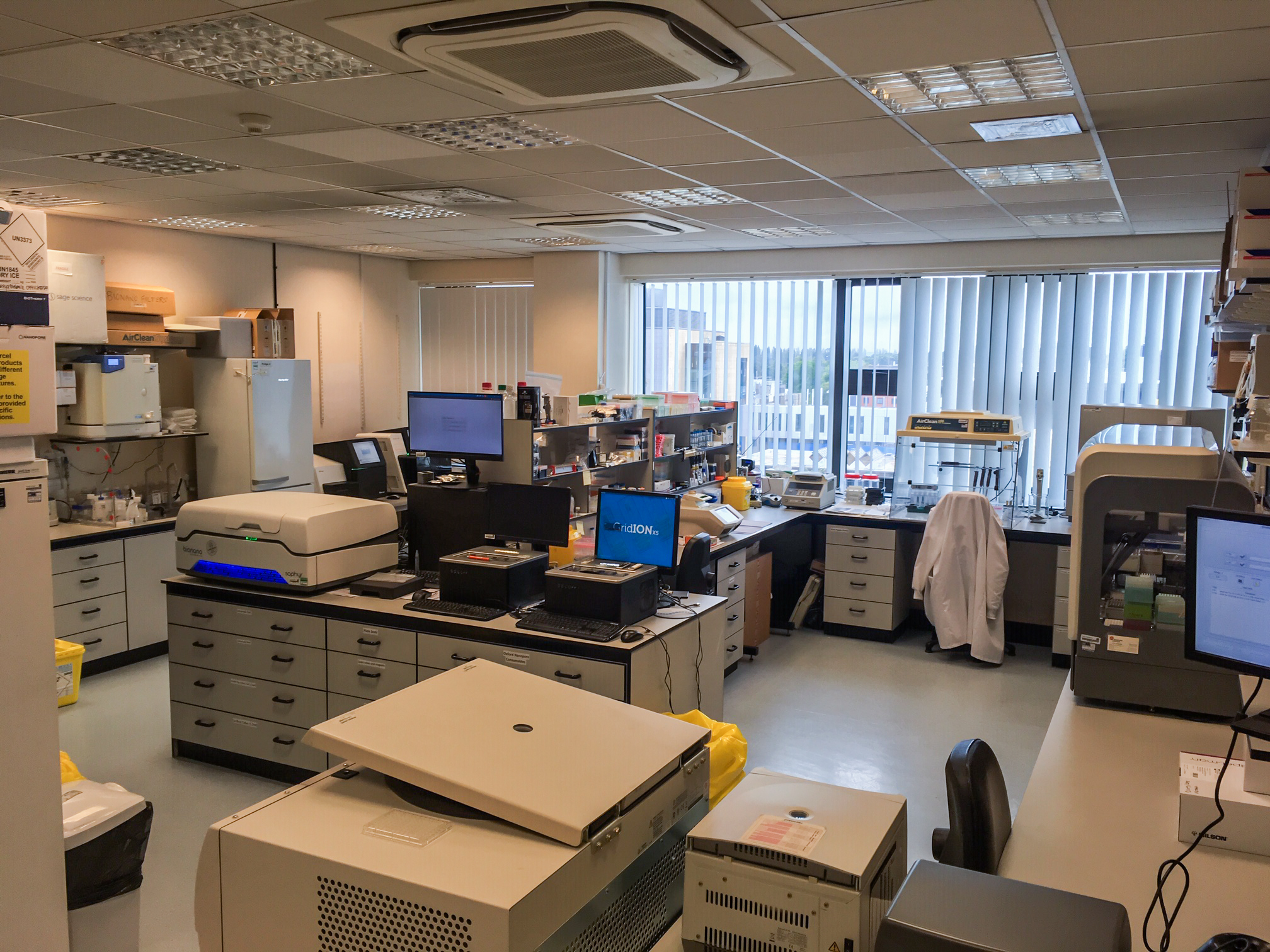
August 1, 2022, by Lexi Earl
Our technology platforms: Genomics
Over the next few weeks we will be featuring stories about our different technology platforms, their work and research, and the facilities available to researchers. These are also featured in our 2021 Annual Report. First up, we look at the genomics facility: Deep Seq.
The Future Food Beacon invested in numerous items of equipment to increase the sequencing capacity and capability of Deep Seq. New equipment has included the Nanopore GridION X5, the 10X Chromium Controller, the TTP Labtech Mosquito HV Robot, the Bionano Saphyr, and the development of a novel portable field kit for in-field sequencing. This equipment has proved especially fruitful during Covid-19, as Deep Seq became part of the Covid-19 Genomics UK Consortium (COG-UK), sequencing 10,000 viral genomes, which have been used to identify patterns of transmission and emergence of variants at a local, national, and global level. Future Food Beacon technologist, Dr Christopher Moore, has been a core member of the team undertaking this work, and has been using the GridION to run samples. The team at Deep Seq have recently been awarded the Vice Chancellor’s medal for their contribution to the fight against Covid-19. Chris will now be working on a Covid-19 waste water monitoring project, sequencing waste water in an attempt to monitor Covid infections across the population.

The TTP Labtech Mosquito HV Robot, part of the equipment used by Deep Seq of sequencing
As well as working on Covid-19 sequencing, Chris has also delivered multiple sequencing projects for the Beacon. These have included using the Mosquito HV robot for high throughput sequencing of 300 lines of foxtail millet, an important crop in semi-arid regions of East Asia. This data set will be used in a genome wide association study (GWAS) to identify how crop traits are influenced by their underlying genetic makeup. Chris has also sequenced the genome of moth bean, a drought resistant crop commonly grown in India. This sequencing was carried out on the GridION and Illumina NextSeq and has provided data that can be used to help understand the moth bean’s drought tolerance and to improve it as a crop for use in other arid regions of the world. The Future Food equipment investment has also enabled industrial collaborations, including one with a commercial seed grower to sequence the genome of one of their F1 hybrid lines and two parental lines of parsnip using Oxford Nanopore, Illumina and Bionano Saphyr technologies.

The sequencing kit designed by Chris for use in the field
The development of the in-field sequencing kit has allowed researchers to perform sequencing in the field, rather than the lab. The kit is equipped with all the instruments necessary to process a sample and sequence it with limited access to power or lab facilities, all contained in a compact suitcase. This was put to the test by researchers on our project examining cocoa fermentation. On-farm DNA sequencing of microbes involved in fermenting the cocoa beans was conducted on remote farms in Colombia, proving that the technology could be used to monitor cocoa fermentations on farms in real time.

Chris Moore and David Gopaulchan on a Colombian cocoa farm where they used our sequencing kit
Researchers wanting to work with Deep Seq can do so here. Follow Deep Seq on Twitter.
No comments yet, fill out a comment to be the first

Leave a Reply